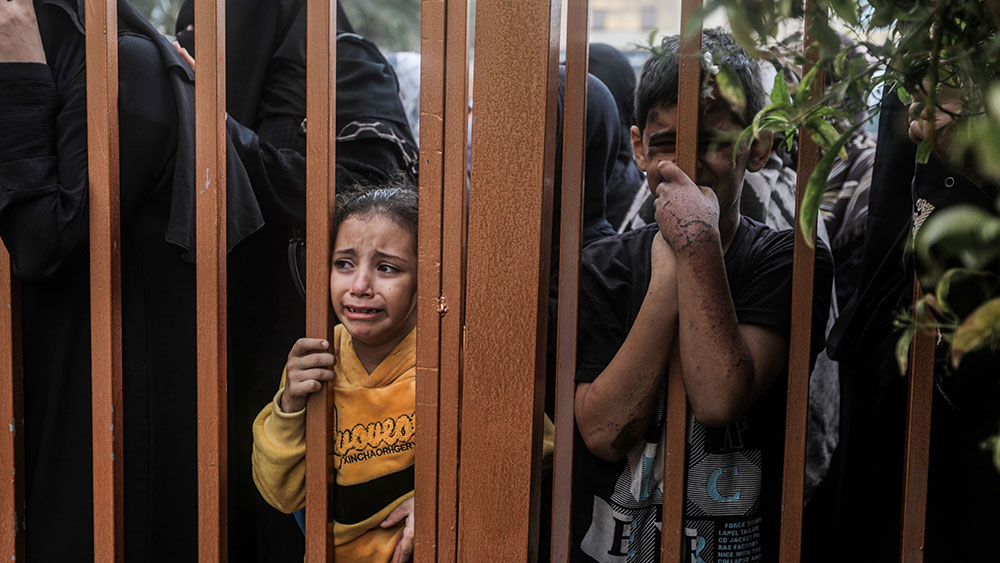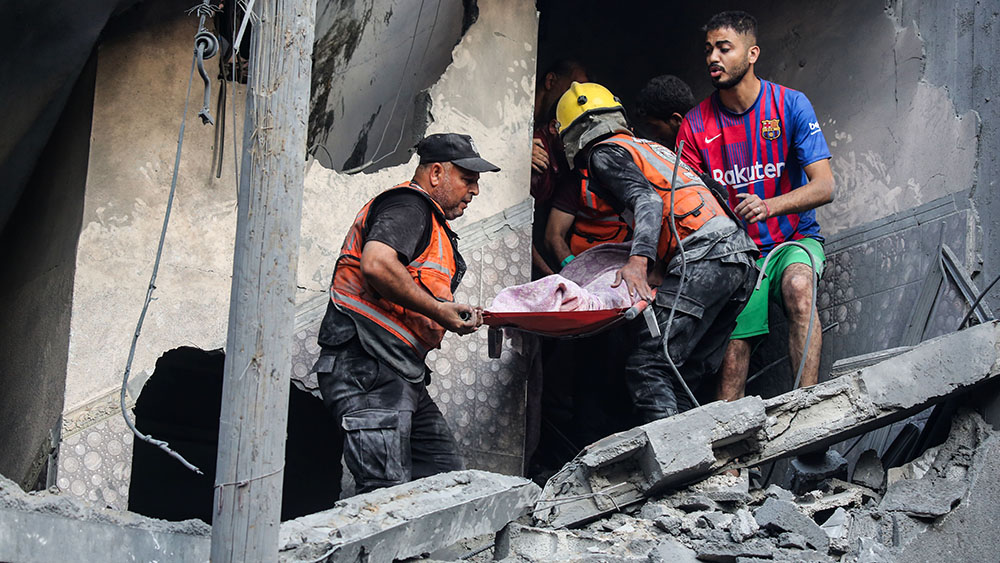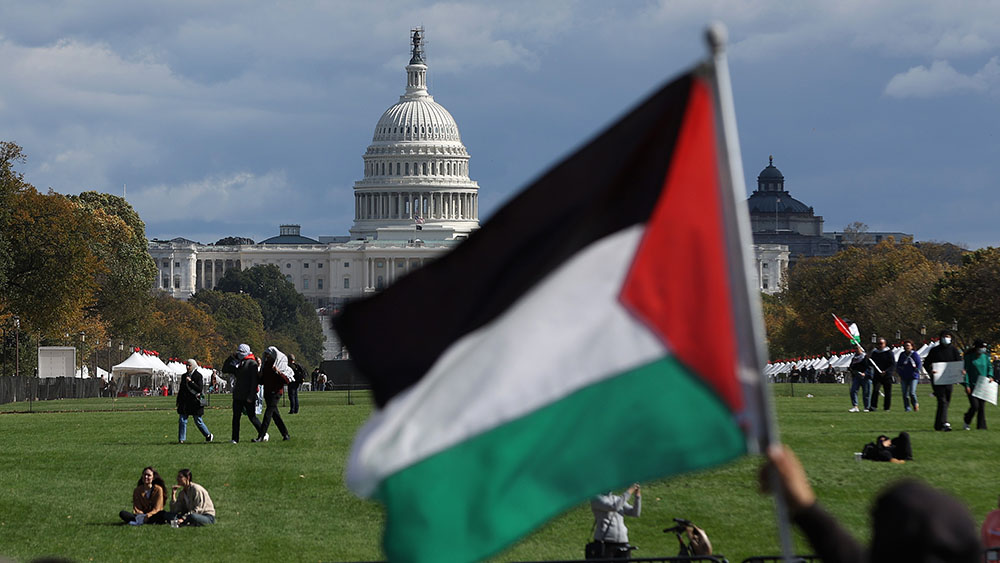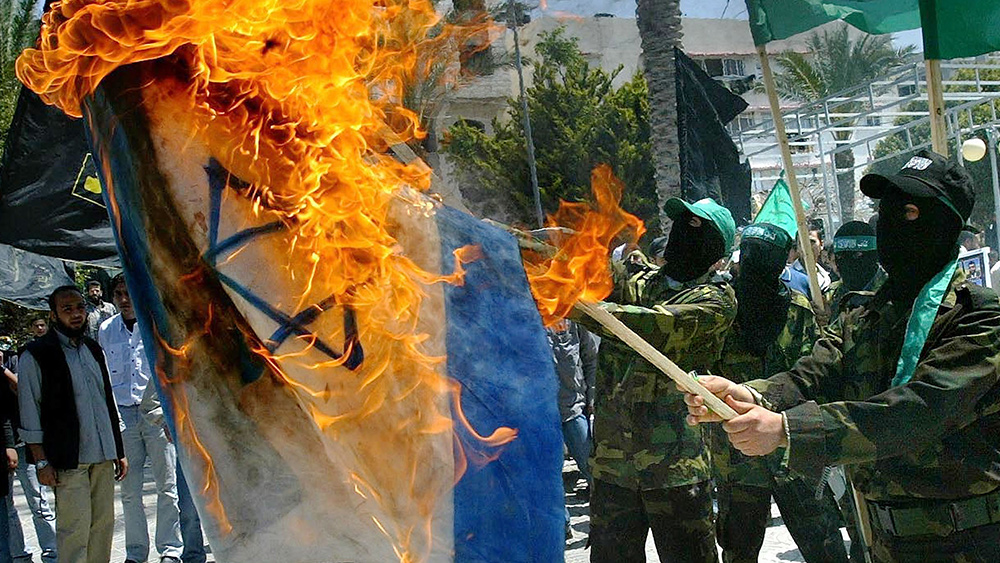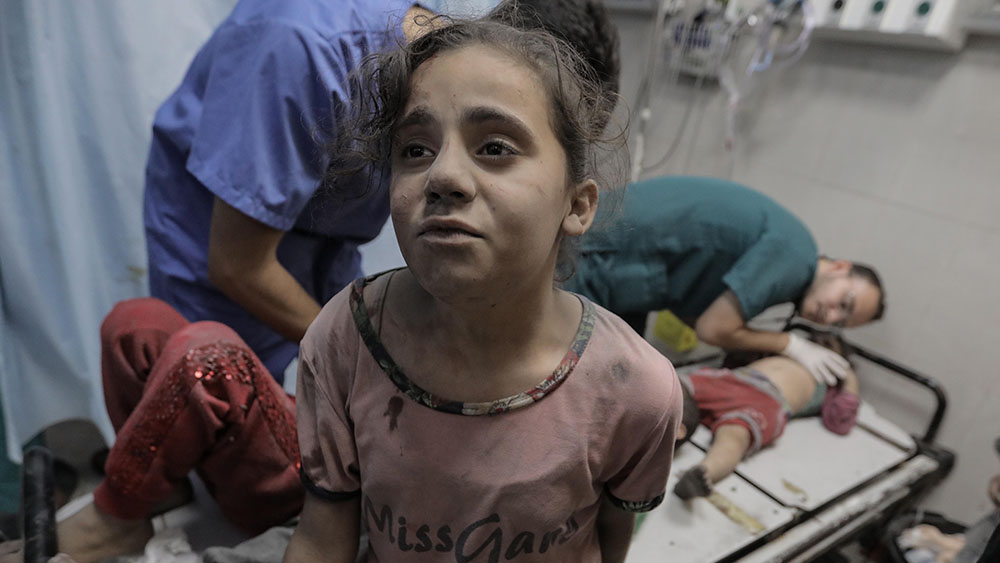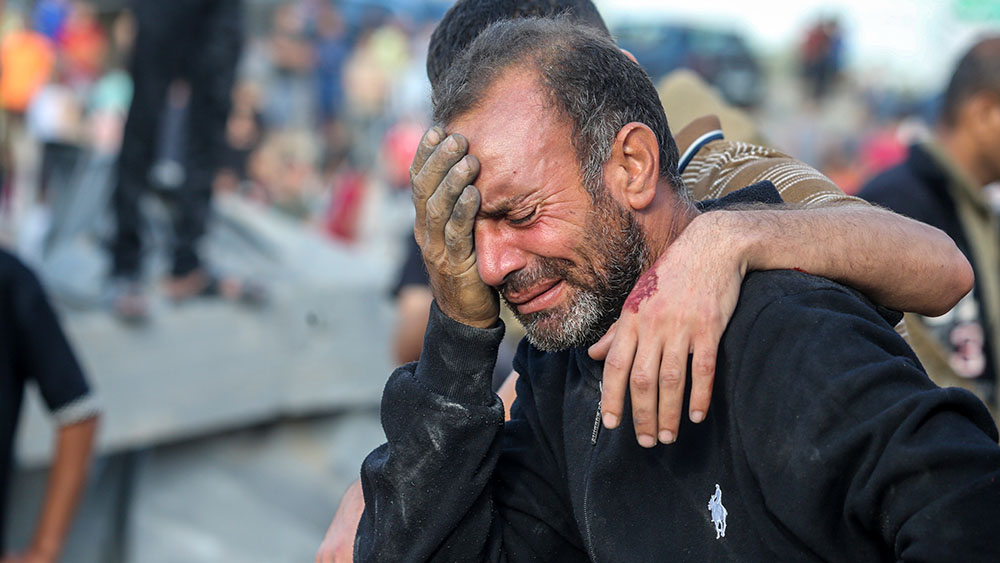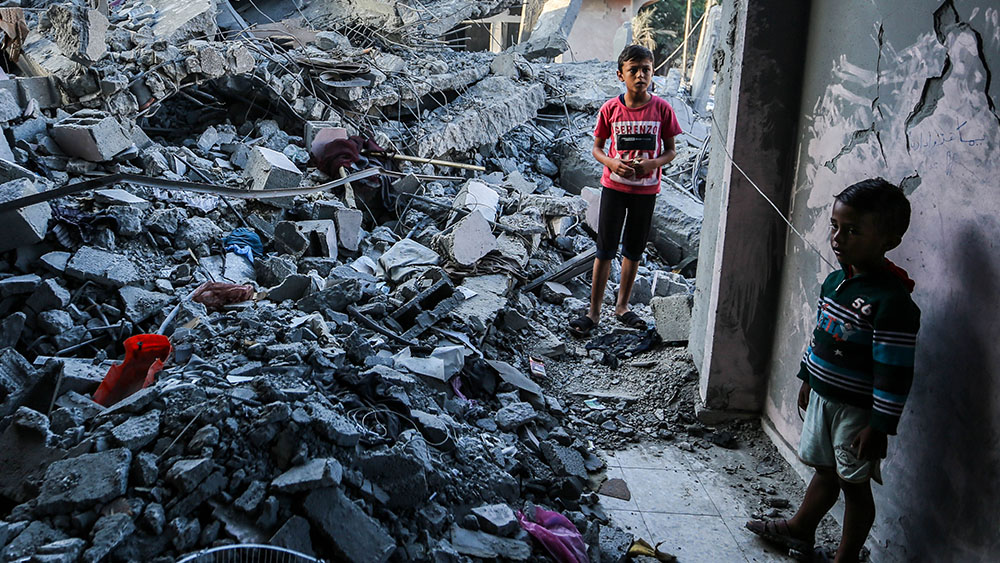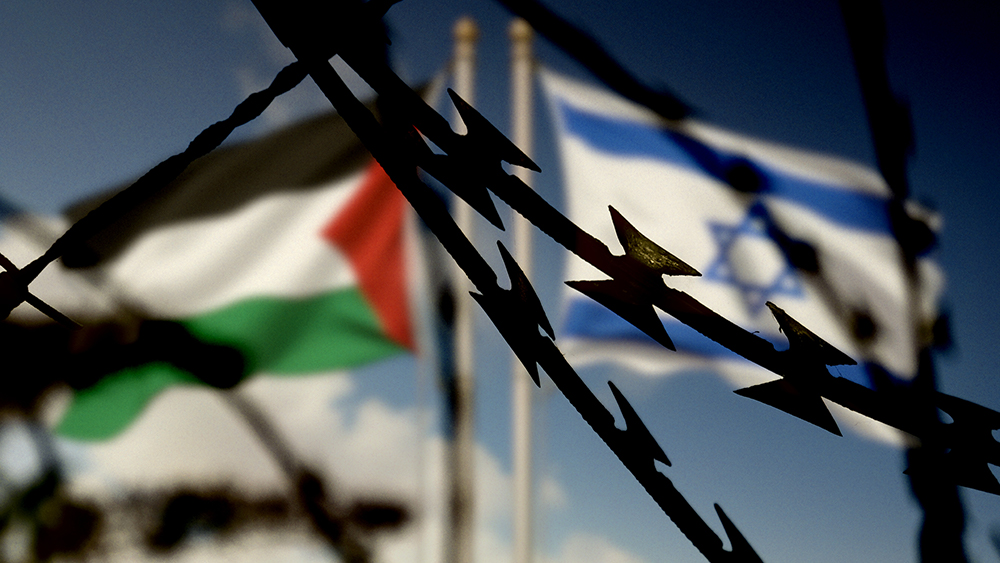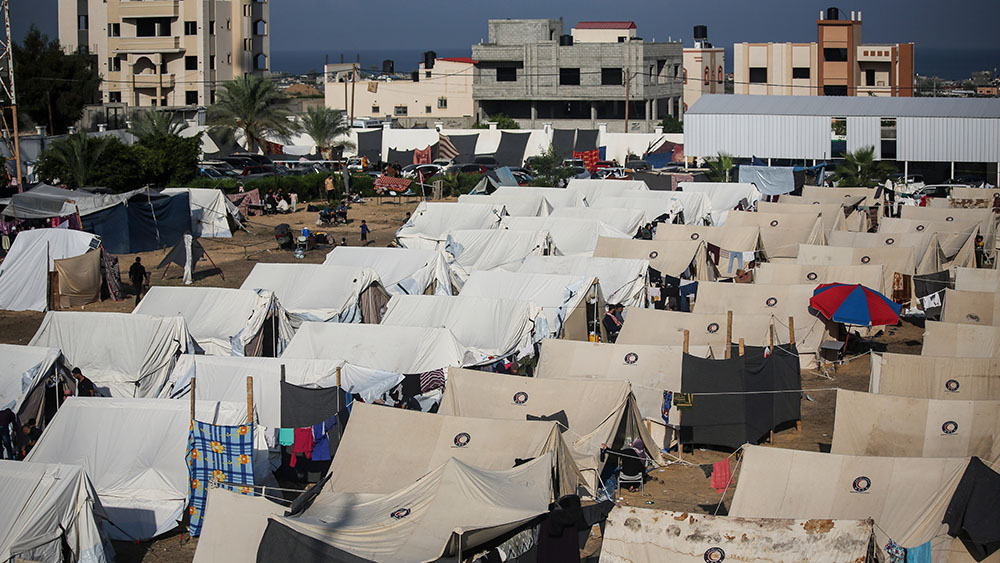U.S. support helped Israel carry out deadly Nuseirat massacre during hostage rescue operation
06/17/2024 / By Cassie B.

The U.S. played a major role in supporting Israel’s recent hostage rescue operation in Nuseirat that left hundreds of Palestinians dead, according to a new report.
The New York Times reports that the U.S. worked with Israeli intelligence to prepare for the operation, which rescued four Israeli hostages who had been held in the Gaza Strip since October while killing 274 Palestinians and injuring more than 600.
Military and intelligence officials from both countries worked together, sharing drone footage, satellite photos and communications monitoring to zero in on the hostages’ location. This is part of an ongoing effort, and the report said that while Israeli and American officials are not sure where many of the hostages are currently being held, there are also cases where they do have information about their whereabouts but cannot carry out a rescue mission.
A crucial component of this weekend’s operation’s success was wide-scale bombing across an area where Palestinian civilians are known to shelter, including the crowded Nuseirat refugee camp and a nearby market. And although the U.S. has tried to distance itself from civilian casualties in Gaza, the U.S. military has flown surveillance drones over the Gaza Strip continuously to aid the hostage rescue efforts that caused these casualties. A senior Israeli official told the Times that American and British drones have been able to get information Israeli drones could not gather.
Although most of the hostages were initially believed to be held in the many underground tunnels in Gaza, officials believe that their captors quickly found that keeping them in apartments in different locations throughout the territory was more practical.
Thanks to support from the U.S. and U.K., Israel was able to gather more intelligence about the hostages. Moreover, as Israel attacked more and more of the Gaza Strip, it left Hamas with fewer places to hide their captives, making it easier to track them down. It is believed that Israeli bombing has displaced 80 percent of the Gazan population, some of them multiple times, and rendering much of the area uninhabitable.
Those holding the hostages were reportedly instructed by Hamas leaders to shoot them if they believed Israeli forces were approaching. Nevertheless, the report said that Hamas leaders strongly believe these individuals are their greatest bargaining chips when it comes to ceasefire negotiations.
According to the New York Times, 43 of the 253 Israeli hostages being held by Hamas died in captivity. Although the report implied Hamas had killed them, their cause of death was not specified. Many Israeli captives, however, have said that the thing they feared most during captivity was being killed by Israeli bombings and that Hamas members tried to protect them from these attacks.
Weekend rescue killed three Israeli hostages
Three Israeli hostages were killed during the rescue operation at Nuseirat this weekend, according to Hamas, which is something that is often glossed over in reports applauding the rescue of the four Israeli hostages. Likewise, the hundreds of Palestinians who died in the operations are being largely ignored in mainstream media reports.
One emergency doctor in Aqsa hospital, Ali Ibrahim Tawil, described the aftermath of the bombardment during the rescue.
“Many were on the floor, beds were put in the courtyard, in a big tent outdoors, literally every place in the hospital was filled with the injured, the dead or their relatives. The emergency room was so full, you couldn’t squeeze through your body from the sheer volume of people,” he said.
The role the U.S. played in the operation is just one of many examples of how its support has been contributing to the civilian casualties in Gaza that the Biden administration claims it is trying so hard to avoid.
Sources for this article include:
Submit a correction >>
Tagged Under:
bias, big government, chaos, conspiracy, fallout, Gaza, genocide, hostage rescue, hostages, Israel, Israel collapse, military tech, Nuseirat, violence, weapons tech, WWIII
This article may contain statements that reflect the opinion of the author
RECENT NEWS & ARTICLES
COPYRIGHT © 2017 HUMANITARIAN NEWS



